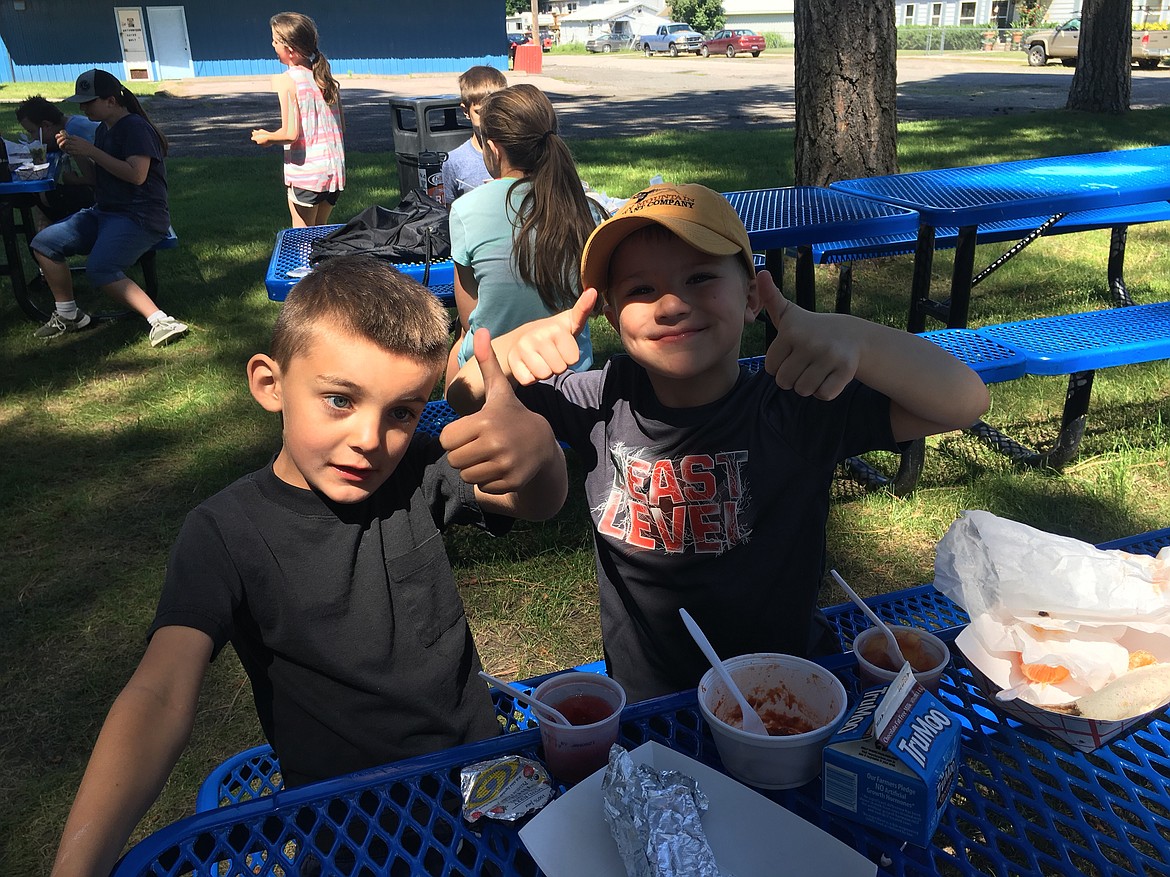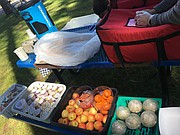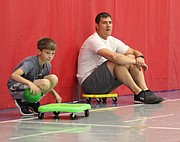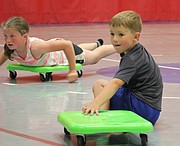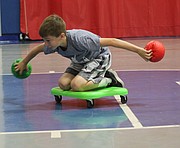St. Regis Schools receive $50,000 grant
Superior, Alberton are denied
By MAGGIE DRESSER
Mineral Independent
Superior and Alberton schools wrapped up their final week of summer camp June 27 after administrators learned they did not receive a grant that would have funded it for the rest of summer.
While St. Regis Schools did receive the funding, the Superior and Alberton consortium lost the 21st Century Community Learning Center (21st CCLC) grant, an initiative that provides federal funding for local afterschool and summer learning programs.
It specifically focuses on schools with high-poverty rates and has funded Superior and Alberton’s summer camp and Afterschool Program for more than 10 years. While there were a couple years in that time where they did not have the funding, schools relied on it for most of that decade.
St. Regis hasn’t had funding since 2013 and they were rejected last year so grant writers tweaked their application to meet the 21st CCLC standards in 2019.
Joe Steele, the St. Regis Schools Superintendent, says they’ve been awarded $50,000 a year for the following five years.
“This will help us for the Afterschool Program during the school year and a summer camp,” Steele said.
While this is good news for St. Regis, Superior and Alberton are forced to explore other options to fund their programs.
“Just because we didn’t get funded mean doesn’t mean that our needs change in any way shape or form,” Superior Schools Superintendent Scott Kinney said. “We’re just going to have to double our efforts and look for more partners in continuing to provide Afterschool Program funding.”
Dawn Bauer, Superior and Alberton’s grant co-writer and Elementary Administrative Assistant, and Superior parent Roxanne Wyatt have begun applying for the Town Pump Charitable Foundation grant.
Wyatt says the Town Pump has already helped fund Superior School’s food pantry and Back Pack Program, and she’s hoping they will provide funding for at least a year if accepted.
Wyatt has an 11-year-old, 13-year-old and 6-year-old whom attended the programs, and she will now be forced to pay more in childcare with the program’s absence.
“My daycare expenses are going to raise exponentially,” Wyatt said.
Wyatt and her husband both work fulltime and they can’t afford to cut back hours. While she’s lucky to have a family friend to care for her kids, many parents will have to rely on daycare facilities which are minimal in Mineral County.
There are only two licensed daycare facilities in Superior, meaning there aren’t always openings. Non-state approved childcare is more expensive and many families in Mineral County cannot afford it.
The lack of programs and childcare also forces some parents to leave their older kids at home where they are wrapped up in their electronics or getting into trouble.
“Unattended teenagers is not a good idea,” Wyatt says. “The more parents I talk to, the more they are leaving their 13- and 14-year-olds home.”
Starting July 1, this became a reality for parents and school officials who are working to make sure this doesn’t happen in the future. Kinney and Bauer said they will try again for the 21st CCLC grant next year, but they will have to tweak their application to match the guidelines.
According to the Office of Public Instruction’s application score, Superior and Alberton “lacks insight into mental wellness.”
This frustrated Kinney and Bauer because their mental health aspects are already implied in their education system like the Taking Responsibility in the Classroom concept and Montana Behavior Initiative, but they didn’t specify these programs in their application. “I don’t want to come off as sour grapes because we weren’t the winner,” Kinney said.
But he says if the $2.1 million was distributed equally, every applicant would receive $70,000 which would be enough to fund school programs. “Programs are set up with winners and losers,” Kinney said.
In 2014, the 21st CCLC grant awarded Superior and Alberton $107,086, according to the Office of Public Instruction. Bauer says they applied for the same dollar amount in 2019 because the more money one school receives, the less money another school can receive.
Out of the 30 applicants, 11 facilities were funded including Ronan Elementary, Boys and Girls Club of Yellowstone County, Greater Gallatin United Way and Anaconda schools.
Superior and Alberton do not offer many alternatives while they await more funding. But the Missoula-based Human Resource Council (HRC) continues coming to Superior for free lunch in Eva Horning Park, which the summer camp kids participated in.
But Bauer said she worries that without the summer camp, fewer students will participate in the free lunch program which will lower the numbers causing the HRC to discontinue the program.
Kids also stay for the Mineral County Library’s free program on Tuesdays where they hold a presentation in the park.
“It’s just this big trickle down in our community,” Bauer said. “We can’t afford a trickle down because our kids lose.”
In the meantime, Superior and Alberton are looking into other grants, and they hope to continue the Afterschool Program and summer camp as soon as they can.
“We just need something for these kids,” Bauer said.

